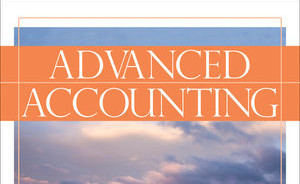Course Description:
The course addresses the English language needs of the students at the undergraduate level and it also acknowledges their critical thinking skills. The text exposes the students to a range of contexts where the language is used to meet a variety of real life communication needs, to give and seek information, to express opinions, and to engage with practical, emotional, intellectual and creative aspects of language by integrating knowledge and skills. The book emphasizes on the use rather than the usage, on how the English language is used rather than how it should be used. Each chapter is organized in such a way that it creates a lot of involvement and encouragement to the learner.
The syllabus has been designed to develop linguistic and communicative competence of undergraduate students. It includes four genres- Short fiction, prose, poetry and drama. The major part of of each lesson is devoted to remedial language learning which includes pronunciation, grammar, vocabulary, spelling and pronunciation. The focus is on the skills of Reading, Writing, Listening and Speaking The teacher also asks questions to stimulate classroom discussion and based on these discussions the students will be made to write short paragraphs /essays, participate in group discussions as part of continuous assessment.
Course Outcomes
The students will be able to:
· Read short fiction, identify the various elements of a short story and write their own stories.
· Improve their pronunciation with the help of phonemic transcription.
· Figure out the etymological origins of English words by learning Greek and Latin roots, prefixes and suffixes, and learn to spell correctly.
· Distinguish the subtle differences in meaning and articulation in homonyms, homographs & homophones
· Learn different types of nouns, pronouns, auxiliary and main verbs.
· Be acquainted with the rules of punctuation concerning capitalization, commas, full stops, question marks and exclamation marks.
· Gain verbal competence in practicing how to introduce oneself in formal situation, describing one’s college and course of study, sustaining cordial conversations and leaving a voice mail.
· Read passages about the local culture, practices, history and personages of Telangana.
· Enhance their writing skills by learning how to draft paragraphs, sequencing sentences into coherent passages, describing something or someone in writing and writing a dialogue.
- Hone their soft skills and imbibe valuable life lessons to steer their course of life.
- Teacher: JYOTSNA A S
- Teacher: Dr. MAITHRY SHINDE
Course Description:
Advance Accounting is 5 credit course with 65 sessions for the semester. Advance Accounting focuses on advance concepts like partnership, mergers &Acquisition , valuation of Goodwill and shares.
Course Objective: To acquire accounting knowledge of partnership firms and joint stock companies
COURSE OUTCOMES | |
| Knowledge based outcome: | |
| On completion of the class students will be able to: | |
| CO1.Prepare Financial Statements in the form suitable for publication. | |
| CO2.Understand consolidated financial statements. | |
| CO3.Understand the Accounting concepts involved in Partnership form of business. | |
| CO4.Understand about the procedures involved when debentures and shares are issued by the company. | |
| Skill based outcome: | |
| On completion of this course students will be able to: | |
| CO5.Analyse the reasons and the logic behind the accounting procedures laid in the Act. | |
| CO6.Get the practical exposures towards the few financing operations of the company. | |
| CO7.Understand the context in various articles relating to the IPO’s and redemptions done by few companies. | |
| CO8.Understand various case studies relating to admission, retirement of partners and dissolution of Partnership firms. | |

- Teacher: JAYA LAXMI D
Course Objectives:
1. Develop the student’s ability to deal with numerical and quantitative issues in business
2. Enable the students to the use of statistical, graphical and algebraic techniques
Course Outcomes:
CO1: Able to apply fundamental concepts in exploratory data analysis
CO2: Able to apply fundamental concepts in exploratory data analysis
CO3: Determine the value of the mean, the median, and the mode of grouped and ungrouped data
CO4: Apply measures of location for central value of the data about which all the set of values of data lies
CO5: Knowledge of average of variation and dispersion of values
CO6: Calculate and interpret the various measures dispersion skewness and Kurtosis
CO7: Understand the relation between two variables by correlation
CO8: Apply different methods to find the strength of a linear association between two numerical variables

- Teacher: DAYANANDA BABU V
Course Description-It is a five credit course designed for the students to understand the functionality of different Media's and Role played by Regulatory Authorities to handle Media industry
Course Objective: The objective of the course is to expose students to
the rigors of media management
and equip them to be able to manage the media in the marketing environment
Course Outcomes
CO1 The objective of the course is to expose students to the rigors Of Management of Media
CO2 equip them to be able to manage the media along with different aids of advertising in the international markets.
CO3 Demonstrate an understanding of the overall role advertising plays in the business world.
CO4 Demonstrate an understanding of advertising strategies and budgets.
CO5 Identify and understand the various advertising media.
CO6 Demonstrate an understanding of how an advertising agency operates.
CO7 To make students learn about the regulations in Media
Industry

- Teacher: Dr. KIRTI SUNIL BIDNUR